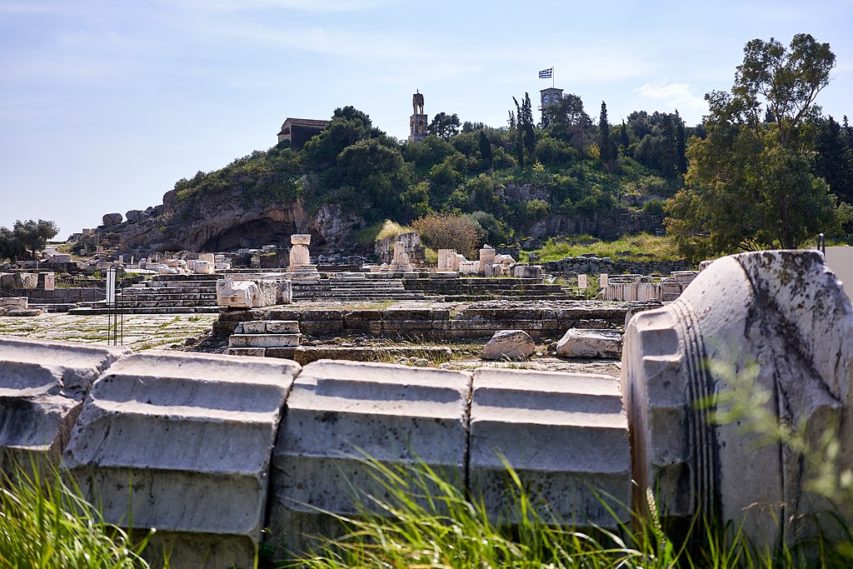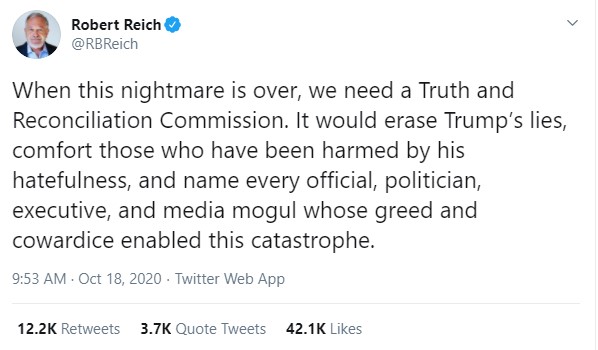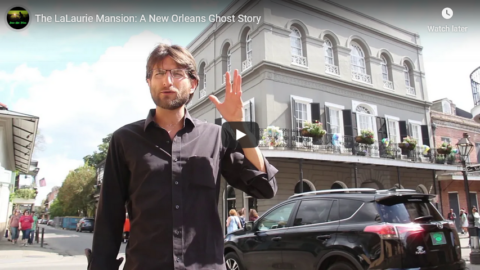In the last free edition of his Weekly Dish newsletter — and probably the last time I’ll be able to link to it — Andrew Sullivan discusses the medical trials and legalization initiatives for psilocybin along with some of the history of its use in the Elusinian Mysteries in ancient Greece:

At the archaeological site of the Sanctuary of Demeter at Eleusis. The information board on the left stands on what was once the courtyard of the sanctuary. Over the staircase behind it stood the Greater Propylaea. Next to the cavern in the background stood the Sanctuary of Pluto (who abducted Persephone, Demeter’s daughter). The cavern represents the entrance to the Underworld. The path to the left of the cavern leads to the Telesterion where the faithful were initiated to the Eleusinian mysteries. The brown building up on the hill (left) is a church dedicated to the Virgin Mary (Church of Panagitsa Mesosporitissa) and stands over the area of the Telesterion.
Photo by George E. Koronaios via Wikimedia Commons.
There are many ways in which this election might portend the future, but there’s a seemingly small issue — only on the ballot in Oregon and the District of Columbia — that’s a sleeper, it seems to me, and worth keeping an eye on. It’s the decriminalization of naturally-occurring psychedelics, in particular, psilocybin, the psychoactive ingredient in some mushrooms which have long been dubbed “magic.”
This doesn’t come out of the blue. Huge strides have been taken in the last few years in the decriminalization of cannabis, with 33 states allowing medical use, of which 11 allow recreational as well. The FDA recently greenlit clinical trials for psilocybin as a “breakthrough therapy” for depression — with some wildly impressive results. Books like Michael Pollan’s magisterial How To Change Your Mind have helped shift the reputation of psychedelics from groovy, counter-cultural weirdness to mature, spiritual, and regulated mental health treatment. Ketamine — previously a party drug and an animal tranquilizer — has shown more promise as an anti-depressant than any therapy since the mid-1990s.
The familiar worry, of course, is that we might be ushering in an era of wild drug experimentation, with unforeseen and unknowable results. Some people fear that relaxing some of the legal restrictions on things that grow in nature could lead to social disruption or higher levels of addiction or worse. The great popularizer of psychedelics, Aldous Huxley, gave us a somewhat sobering description of what might be our future in Brave New World, and many in the West have been terrified of these substances for quite a while.
But new research suggests that this shift toward integrating psychedelics into a healthy, responsible life for Westerners may not be new at all. It would, in fact, be a return to a civilization that used these substances as a bulwark of social and personal peace. New literary investigations of ancient texts, new — and re-examined — archeological finds, and cutting edge bio-chemical technology that can detect and identify substances in long-buried artifacts, suggest that deploying psychedelics would, in fact, be a return to a Brave Old World we are only now rediscovering.
We’ve long known that human knowledge of psychedelic aspects of nature goes back into pre-history; and use of them just as far. But perhaps the most surprising find in this new area of research is that sacred tripping was not simply a function of prehistoric religious rituals and shamanism, but an integral, even central part, of the world of the ancient Greeks. The society that remains the basis for so much of Western civilization seems to have held psychedelics as critical to its vision of human flourishing. And that vision may have a role to play in bringing Western civilization back into balance.
A breakthrough in understanding this comes in the form of a rigorously scholarly new book, The Immortality Key: The Secret History of the Religion With No Name, by Brian Muraresku. What he shows is the centrality of psychedelic use for the ancient Greeks, in an elaborate and mysterious once-in-a-lifetime ceremony at the Temple of Eleusis, a short distance from Athens. We’ve long known about this temple of the Mysteries, as they were known, and the rite of passage they offered — because it’s everywhere in the record. Many leading Greeks and Romans went there, including Plato and Marcus Aurelius. Here is Cicero, no less, in De Legibus:
For it appears to me that among the many exceptional and divine things your Athens has produced and contributed to human life, nothing is better than those Mysteries. For by means of them we have been transformed from a rough and savage way of life to the state of humanity, and been civilized. Just as they are called initiations, so in actual fact we have learned from them the fundamentals of life, and have grasped the basis not only for living with joy, but also for dying with a better hope.







